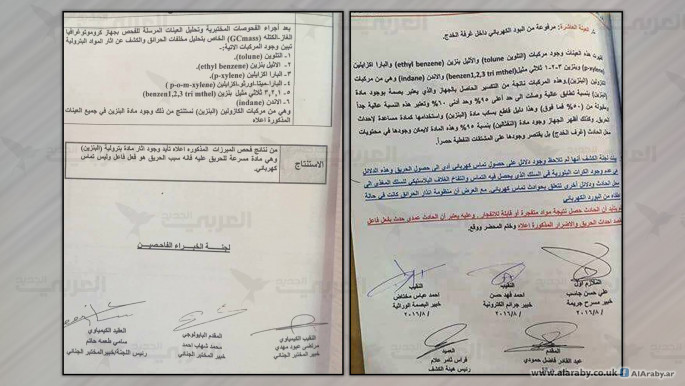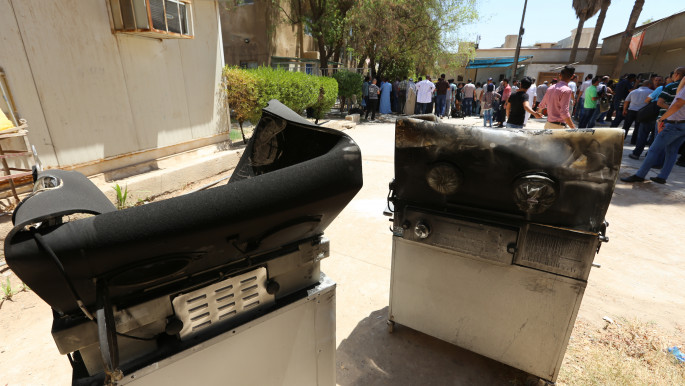Iraq maternity ward fire 'likely a deliberate arson attack'
A tragic fire that killed 13 newborn babies in an Iraqi maternity ward last week was a deliberate arson attack, the health ministry's spokesperson said on Sunday.
Evidence collected from the scene at Baghdad's Yarmuk Hospital showed traces of flammable materials, indicating the occurrence of arson, Ahmed al-Rudeini said.
The latest findings came in the final report by a committee of experts assigned to investigate the incident, a copy of which was obtained by The New Arab.
Rudeini had previously said that the fire was caused by an electricity failure just after midnight on Tuesday.
Iraq's health minister Adeela Hamoud announced her resignation on live television one day after the incident, as she was accused of negligence.
Speaking on the condition of anonymity, a source from Hamoud's office told The New Arab that political disputes over high positions in the health ministry were behind the arson attack.
One of the disputes relates to Prime Minister Haidar al-Abadi's decision to dismiss Sadrist Jassib Latif from his position as head of Baghdad's Karkh health department three months ago, the source said.
Another dispute resulted from corrupt officials taking over contracts to import medical equipment worth $500 million.
The parties of the disputes meant to embarrass the ministry's officials by this fire, the source said.
"Hospitals and health facilities have turned into groups and blocs that serve the interests of these parties," he added.
Bereaved parents
The Iraqi health ministry said 29 female patients and eight babies were safely moved and treated for burns or smoke inhalation at another hospital.
 |
| The latest findings came in the final report by a committee of experts assigned to investigate the incident [The New Arab] |
Charred incubators could be seen outside one of the entrances to the hospital, access to which was strictly controlled by the police.
The grief of the bereaved parents and relatives was compounded by the fact that the babies' young age and the effects of the fire made it very difficult to identify the bodies.
Umm Ahmed came to Yarmuk on Tuesday when a close relative of hers gave birth. The baby died in the inferno and the mother suffered burns, she said.
"I am looking for our child, they told me 'go find him in the fridge'," said the middle-aged woman.
"I found him in a small cardboard box but I'm not even sure if it's our child or a piece of sponge. It looks like charcoal," said the woman, wearing a black over-garment.
"I just want our child, somebody give him to me," she cried.
Poor services
 |
|
| Burnt incubators stand outside Yarmuk hospital in west Baghdad [Getty] |
Many of Baghdad's public hospitals are poorly maintained and offer sub-standard healthcare, forcing a number of Iraqis to seek private treatment or travel abroad.
The lack of adequate public services, such as quality medical care, electricity and water supply, has angered the public and led to a series of protests in the past year.
"The hospital is very old and doesn't have fire equipment," Hijami said.
A member of Yarmuk hospital staff who asked not to be named said a "thorough investigation" had been launched into the tragedy.
The authorities were criticised in the aftermath of an attack in the Karrada district of Baghdad last month that killed at least 323 people.
The truck bomb blast claimed by the Islamic State group sparked fires in shopping arcades on either side of the street that accounted for a significant proportion of the casualties.
Witnesses complained that the fire brigade was unacceptably slow in responding to the emergency.
Iraq is one of the world's top oil producers but conflict and endemic graft have prevented that wealth from translating into better living conditions for Iraqis.
Agencies contributed to this report





 Follow the Middle East's top stories in English at The New Arab on Google News
Follow the Middle East's top stories in English at The New Arab on Google News


